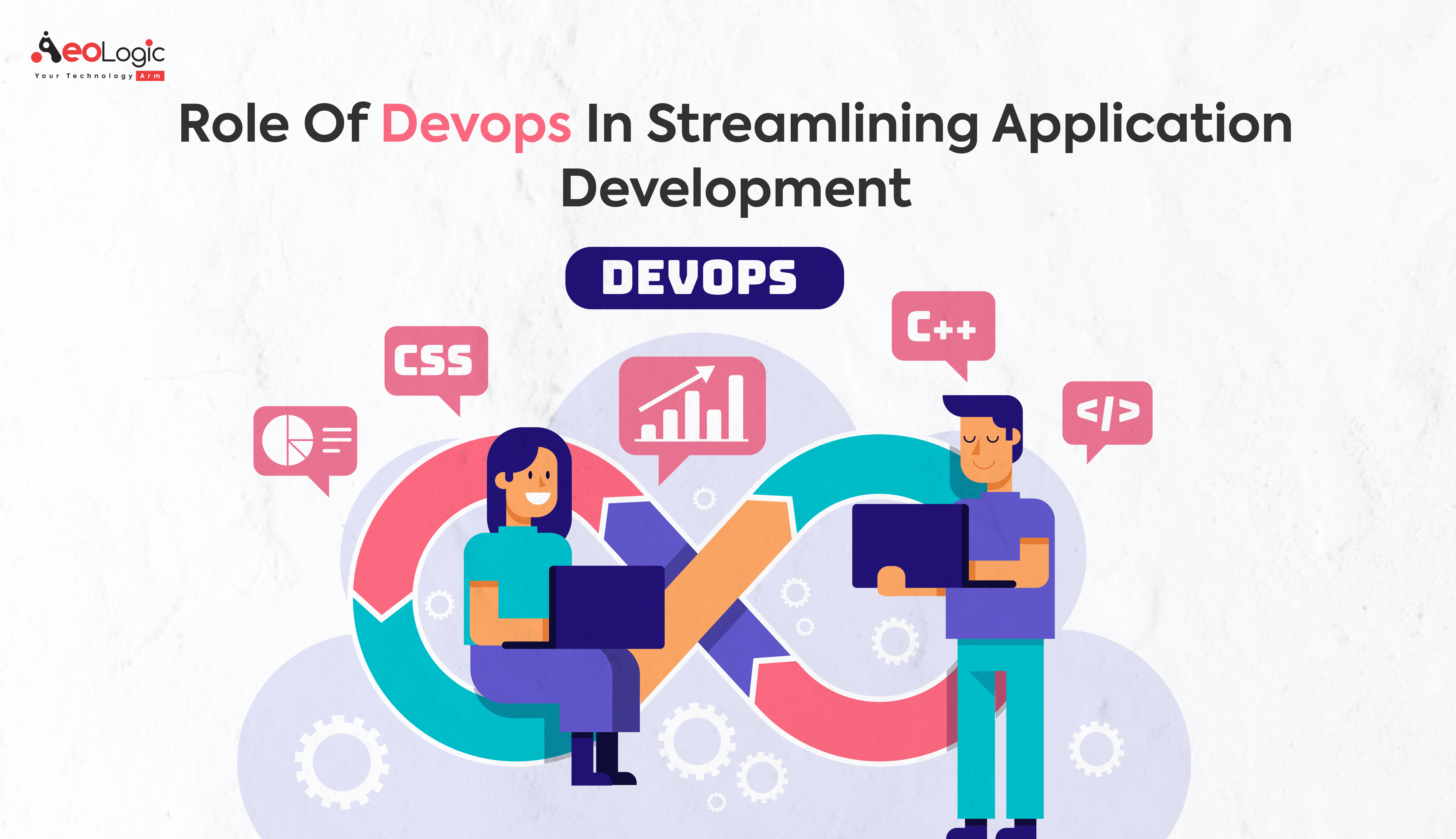Introduction
Despite the complexity of today’s technology geography, prominent software companies and eCommerce diligence have turned to DevOps for results. Over the last many times, DevOps relinquishment has steadily increased, pressing its essential part in streamlining software development. In this way, software can be delivered briskly and with higher trustability. In this composition, we explore how the role of DevOps in application development can streamline operation development and help companies in achieving their pretensions in a more effective manner.
Also ready: Top Benefits of Custom Mobile Application Development
What is the Role of DevOps in Application Development?
The DevOps methodology encourages communication and collaboration between IT professionals and software inventors. In addition to perfecting agility, adding trustability, reducing costs, and accelerating time- to-market, it’s an elaboration of traditional software development and operations practices. By 2025, Gartner predicts that over 85 % of associations will borrow cloud computing strategies, with 95 % of forthcoming digital workloads taking place on cloud platforms, over 30 % from 2021. Automating, optimizing, and enhancing the development, testing, and release of software operations are all part of DevOps services. Software development life cycle becomes more effective, effective, and nimble as a result of increased collaboration, communication, and collaboration between groups.
Why DevOps Matters
Along with its efforts to break down walls to communication and collaboration between development and IT operations teams, a core value of DevOps is client satisfaction and the briskly delivery of value. DevOps is also designed to propel business invention and the drive for nonstop process enhancement. The practice of DevOps encourages briskly, better, more secure delivery of business value to an association’s end customers. This value might take the form of further frequent product releases, features, or updates. It can involve how quickly a product release or new point gets into customer’s hands — each with the proper situations of quality and security. Or, it might concentrate on how quickly an issue or bug is linked, and also resolved and re-released.
Beginning structure also supports DevOps with flawless performance, vacuity, and trustability of software as it’s first developed and tested also released into product.
Advantages of the Role of DevOps in Application Development
Let’s dive into how the role of DevOps in application development can streamline operation development and explore the reasons behind its growing operation. DevOps offers inventors a number of advantages that make operation development, testing, and deployment easier.
Automation
DevOps emphasizes automation to exclude tedious manual tasks similar as configuration operation, testing, deployment, and monitoring.
Cost- Savings
By barring manual processes and enhancing delivery processes, DevOps reduces the need for fresh labor force to manage the development cycle, performing in cost savings.
Quality Assurance
DevOps leaders incorporate nonstop testing and QA stylish practices throughout the development cycle, icing prompt identification and resolution of bugs or blights and maintaining high- quality law.
Advanced Collaboration Between Team
DevOps plays a vital part in enabling cross-functional collaboration between different departments, including engineering, operations, and support. This ensures all stakeholders are aligned during operation development.
Faster Time- to-Market
DevOps streamlines processes by barring the need for primer, complex tasks and introducing greater robotization, performing in reduced lead times and briskly delivery of operations.
Enhanced Security
DevOps emphasizes integrating security stylish practices into workflows, guarding operations from vicious pitfalls, and enhancing overall security. By using the expertise of a devoted DevOps Development Company, farther optimization of systems and processes can be achieved, leading to lesser cost edge.
Tools & Technologies for Application Development in DevOps
Modern software development practices include DevOps, which helps associations streamline operation development. Then are the primary tools and technologies used in DevOps development services:
Configuration Operation Tools
Tools like Ansible, Chef, and Puppet insure thickness across product surroundings, making it easier to emplace new features or bug fixes with minimum threat.
Continou0s Integration/ Delivery
Tools similar as GitHub and BitBucket automate the integration of changes from different inventors into a single interpretation of the law, icing proper testing and prompt deployment.
Automated Testing Tools
Tools like Jenkins, CircleCI, and Travis CI enable inventors to rapidly run tests on law, relating and addressing bugs beforehand in the development process to help significant issues.
Monitoring & Logging
Tools similar as New Relic and Splunk give real- time visibility into operation performance, easing the quick identification of performance issues or outages. By using automated testing, configuration operation, nonstop integration/ delivery, and covering logging, teams can develop advanced- quality operations with smaller miscalculations, accelerating the trip from idea to product. Thus, DevOps plays a pivotal part in streamlining operation development by furnishing teams with the necessary tools and technologies to unite effectively.
Best Practices for Implementing DevOps in Application Development
According to a post by Stronger, the DevOps request is projected to grow at a CAGR of over 20 percent between 2020 and 2026. Therefore, as DevOps are earning popularity as a means of streamlining operation development. Furthermore, it’s essential to follow best practices to maximize its benefits. Following are some recommended practices
Using Robotization
Robotization is a crucial element of the DevOps process, barring manual tasks. Therefore, using robotization tools like Ansible, Jenkins, and Cook can expedite app development. And streamline the release process.
Faster Collaboration
Subsequently, successful DevOps perpetration requires collaboration between inventors, operations, and other stakeholders. Even more, open communication and collaboration insure the timely completion of tasks. That too within budget.
Leverage Containers
Consequently, containers simplify the development process and enhance scalability. Packaging operations in self-contained surroundings allows for easy deployment and operation.
Monitor the Process
Monitoring Ensures Effective DevOps Processes. And this includes monitoring operation performance, resource application, and other criteria to identify backups and areas for enhancement.
Embrace Cloud Computing
Cloud computing provides inflexibility and scalability for DevOps systems. Solutions like AWS, Azure, and GCP allow associations to emplace operations across several surroundings quickly and fluently. While enforcing DevOps in operation development, it’s pivotal not to overlook the value of DevOps consulting services. Also, these services can offer guidance and moxie throughout the process.
Also read: The Importance of DevOps in the Business Process
Conclusion
In application development, DevOps developers are playing a vital role in streamlining the process and boosting software quality. Furthermore, by integrating it, developers are able to collaborate more effectively, recognize issues faster, and get products to market faster.
Connect with us to know more!









